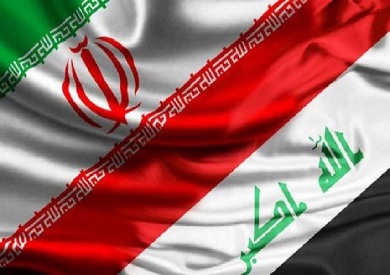On Wednesday, the neighboring countries Iraq and Iran held talks discussing ways to enhance their bilateral relations, in addition to the outcomes of Tehran’s negotiations with the European Troika regarding Iran’s nuclear program.
This took place during Iraqi Foreign Minister Fouad Hussein’s reception of Iranian Deputy Foreign Minister Saeed Khatibzadeh in Baghdad, according to a statement from the Iraqi Foreign Ministry.
The ministry stated that “the meeting discussed the course of bilateral relations between the two countries and ways to strengthen them in a manner serving mutual interests, in addition to reviewing current regional and international developments.”
Fouad Hussein affirmed Iraq’s keenness to support dialogue and understanding to contribute to enhancing security and stability at both regional and international levels, according to the statement.
Khatibzadeh presented “an overview of the actual war conditions during the Israeli aggression against the Islamic Republic (Iran), and its effects on Iranian politics and society.”
He added that these conditions “reflected on the redefinition of security and military concepts, as well as the political approach in Iran’s international relations,” without further details.
On June 13, Israel, with US support, launched an aggression against Iran that lasted 12 days, targeting military and nuclear sites, civilian facilities, and assassinating military commanders and nuclear scientists.
Iran responded by targeting Israeli military and intelligence sites with ballistic missiles and drones, before Washington announced a ceasefire between Tel Aviv and Tehran on June 24.
The Iraqi and Iranian sides also discussed “the results of the Iranian-European negotiations and the ongoing dialogue with the Troika countries (Britain, France, and Germany).”
Israel, the United States, and European countries accuse Iran of seeking to produce nuclear weapons, while Tehran says its program is designed for peaceful purposes, including electricity generation.
Israel is the only country in the region possessing a nuclear arsenal, which is not subject to international oversight, and has continued for decades to occupy lands in Palestine, Syria, and Lebanon.
In late August, Iran, Britain, France, and Germany held a round of talks in Geneva regarding Iran’s nuclear program.
Later that month, the three European countries decided to activate the “snapback” mechanism included in the 2015 nuclear agreement with Iran, from which the United States withdrew in 2018.
This mechanism allows re-imposing sanctions on Iran if requested by a party to the agreement, which included the five permanent members of the UN Security Council (the US, Russia, China, Britain, and France) and Germany.
Prior to the Israeli aggression on Iran, Tehran and Washington held several rounds of indirect negotiations regarding Iran’s nuclear program.













Recommended for you
Talib Al-Rifai Chronicles Kuwaiti Art Heritage in "Doukhi.. Tasaseem Al-Saba"
Exhibition City Completes About 80% of Preparations for the Damascus International Fair Launch
Unified Admission Applications Start Tuesday with 640 Students to be Accepted in Medicine
Egypt Post: We Have Over 10 Million Customers in Savings Accounts and Offer Daily, Monthly, and Annual Returns
Al-Jaghbeer: The Industrial Sector Leads Economic Growth
His Highness Sheikh Isa bin Salman bin Hamad Al Khalifa Receives the United States Ambassador to the Kingdom of Bahrain